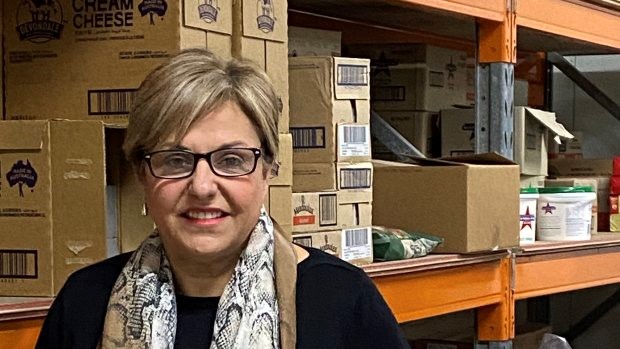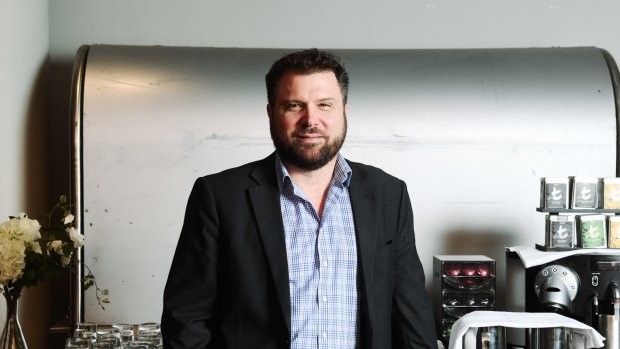NAFDA Foodservice CEO, Brad Lee, and Country Wide CEO, Richard Hinson, discussed with the Australian Financial Review the recent undertaking of Woolworths and Coles to enter the B2B and foodservice market places.
While the foodservice industry was one of the sectors hit hardest by the COVID-19 pandemic with a drop of 60-90% in sales, the two major supermarket were the largest beneficiaries with sales as high as 40% above prior year.

Both retailers have now brought forward strategic projects to aggressively enter the foodservice industry, raising major concerns about the impact on independent foodservice distributors.
The two CEO’s join forces in calling ACCC Chairman, Rod Sims, to action and protect the Mum and Dad businesses of the independent foodservice sector.
They have also called on government to extend the job keeper payments for the Hospitality Industry, including the independent distributor supply chain.
Australian Financial Review
Sue Mitchell, Senior Reporter. July 10, 2020 – 2.15pm
Sales at Anna Tengstrom’s family-owned food distribution business on the NSW/Victorian border were growing nicely until the coronavirus hit in March.
Almost overnight, most of her 600 customers, which include hotels, clubs, cafes, takeaway food outlets, restaurants, schools and nursing homes, were forced to close, decimating sales and leaving her holding mountains of stock.
Foodservice distributor Anna Tengstrom: “It was just like having a carpet [pulled] from underneath our feet.”

“It was just like having a carpet [pulled] from underneath our feet,” Ms Tengstrom told AFR Weekend. “We were gearing up for Easter and that was basically non-existent.”
“It took until June to get to some sort of normality and now we’ve just gone backwards again.”
Now Ms Tengstrom perceives another threat as Woolworths, Australia’s largest retailer, eyes the $11 billion foodservice and wholesale sectors.
Woolworths wants to lift its wholesale sales three- to four-fold to $1 billion in three years by using its burgeoning online platform and massive distribution network to supply small, medium and large customers such as childcare centres, schools and disability and care services with food and groceries.
In April, Ms Tengstrom expressed her fears to Australian Competition and Consumer Commission chairman Rod Sims, who is keeping a close eye on the major supermarket chains and does not want the pandemic to lead to reduced competition in the sector, to the detriment of consumers and independent businesses.
“This is a real concern for foodservice distributors, as we are more than a food provider, we create employment in regional areas, look after other small businesses and service providers in regional areas,” she said.
“Woolworths and Coles have already had a free kick due to COVID … in the meantime the foodservice sector has struggled whilst maintaining essential services to hospitals and nursing homes,” she said.
We will want vigorous competition
While the ACCC has given interim authorisation to Coles, Woolworths, Aldi and Metcash to share certain information and co-ordinate their response to supply shortages and panic buying during the coronavirus pandemic, Mr Sims has expressed concern about major companies taking advantage of the crisis to increase their market power.
“We will want vigorous competition to drive the recovery when it comes,” Mr Sims told the AFR Banking & Wealth Summit in March.
Now two groups representing more than 200 independently owned foodservice distributors, NAFDA Foodservice and Countrywide, have put rivalries aside to seek intervention from the ACCC to stop Woolworths taking a major share of the market.
“The retailers have deep pockets and big e-commerce platforms and they had an opportunity during COVID to look over the fence and see an opportunity,” said NAFDA chief executive Brad Lee.
“We’re asking the government to understand the COVID impact and the impact of allowing the major retailers to grow their size and scale [which] is only going to negatively impact our members even further.”
This is not good for the consumer
Echoing the concerns of food and grocery suppliers, who are also worried about Woolworths’ B2B ambitions, Mr Lee fears the retailer’s expansion in the foodservice sector will lead to erosion of margins and loss of business for independent distributors, which will flow through the supply chain to providers such as refrigerator technicians and builders.
“We’re talking about thousands of job losses and millions stripped out of the economy to go to the major players, and ultimately this is not good for the consumer,” Mr Lee said.

Richard Hinson, the CEO of Countrywide, said Woolworths and Coles had been major beneficiaries of the pandemic, while the foodservice, hospitality and tourism sectors had been among the hardest hit.
Countrywide has more than 100 food distributor members, half of whom are in regional areas. When COVID-19 hit and the industry shut down, its members saw between 60 per cent to 90 per cent of sales dry up overnight, Mr Hinson said.
“Now it almost feels as though [the major retailers] have taken advantage of that and while the foodservice and hospitality industries are just starting to recover they’re using the financial benefit they got out of COVID to really put their foot on us and keep us down,” he said.
Deloitte Access Economics estimates that cafes, restaurants, pubs, clubs, hotels and motels took the biggest hit of any industry in the June quarter, while industry body Restaurant & Catering Australia estimates 12,000 restaurants across Australia will not survive the pandemic.
Mr Hinson said Woolworths’ proposed pricing would probably contribute to the demise of small and medium-sized foodservice distributors who were unable to compete on price.
Countrywide CEO Richard Hinson fears Woolworths’ push into the B2B sector will contribute to the demise of small and medium-sized foodservice distributors. Peter Braig
“Fewer distributors and wholesalers will limit choice and competition in the B2B market and for some suppliers this channel represents the majority of their business,” Mr Hinson said.
“Our guys really nurture their local communities, local growers and manufacturers and employ a lot of people in regional townships. As Woolworths comes into that foodservice marketplace with a B2B model it does impact on the viability of employment in those areas,” he said.
Woolworths has denied it is chasing a dominant slice of the cafe, restaurant and takeaway trade.
“It’s about servicing the childcare, disability or education centres that need fresh food and groceries,” a spokesman said. “We think we can do that by delivering a better offering in this space.”
Many foodservice customers were already buying from Woolworths through its online site and stores.
“We want to service a channel we are already serving through our stores and our consumer website,” the spokesman said. “With this business offering, we’re trying to make their billing easier and their account management easier, at the same time as allowing us to manage that business better.”
Countrywide and NAFDA Foodservice have also asked the federal government to extend the JobKeeper subsidy for the foodservice and hospitality sectors beyond September.
“Everyone we’ve talked to about it is quite sympathetic but we’re not seeing a lot of action,” said Mr Hinson.
“Let us not make the mistake, during these extraordinary times, of concentrating solely on the issue of competition and price in the food services sector. Let us concentrate on the survival of independent, family-owned foodservice distributors who employ tens of thousands of Australians.”
Source: Australian Financial Review. Jul 10, 2020